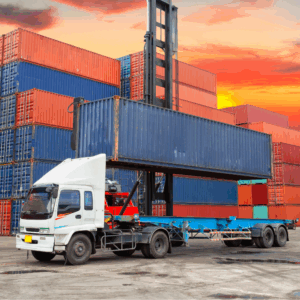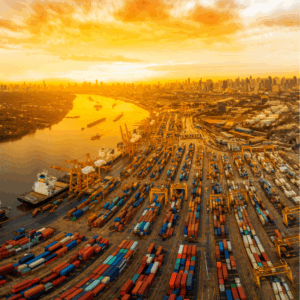
The Breakdown of LCL Shipment Charges: Factors, Structure, and Implications
Understanding the cost structure of LCL shipment charges requires a detailed look at how logistics operations are priced, coordinated, and executed. LCL (Less than Container Load) freight refers to the transport of goods that do not fill an entire container and thus are consolidated with cargo from other shippers. This shared space model enables companies to benefit from economies of scale, but it also introduces complexity in pricing. Charges are typically based on the greater volume (CBM) or weight (W/M), and freight forwarders play a crucial role in classifying, quoting, and coordinating shipments with multiple carriers across various geographies. The freight transport service in LCL shipping typically includes origin and destination charges, CFS (Container Freight Station) fees for stuffing and deconsolidation, documentation, customs clearance, and local delivery, often broken into multiple line items.
A crucial aspect often overlooked is that each segment of the journey—be it domestic pickup, ocean freight, or last-mile delivery—may be governed by a different pricing mechanism and regulatory framework. LCL shipments are subject to multiple accessorial charges, including terminal handling charges (THC), fuel surcharges, security fees, and sometimes port congestion surcharges. As noted in the study “Competitiveness of Price in International Road Freight,” pricing structures also depend on regional logistics infrastructure, fleet availability, and cost predictability, especially in road freight corridors that connect with maritime logistics chains. Freight pricing must also account for fluctuating market conditions, geopolitical shifts, and regulatory compliance in cross-border transport. All these variables require detailed cost modeling and responsive logistics execution, which is where intelligent transportation systems and freight forwarder platforms, such as ExFreight, offer essential value.
The Strategic Role of Freight Forwarders and Carriers in the LCL Model
In the LCL ecosystem, the collaboration between carrier freight forwarders and cargo owners is both operational and strategic. As intermediaries, freight forwarders manage the booking, documentation, customs compliance, and route optimization across multiple modes—maritime, air, rail, and road. The white paper “Freight Forwarders and Common Carriage” highlights the dual role that freight forwarders play; they operate both as agents for shippers and as principals who may subcontract segments to carriers. This duality requires freight forwarders to be experts in freight consolidation, pricing negotiations, and risk mitigation. Freight forwarders often secure better LCL cargo rates due to their buying power and volume contracts with ocean carriers, which are passed to clients as cost-effective LCL shipping quotes.
Moreover, the legal distinction between a freight forwarder and a carrier is critical. While a carrier assumes responsibility for the goods during transport, a freight forwarder arranges the transport on behalf of the shipper, and their liability is generally limited, unless they operate as a Non-Vessel Operating Common Carrier (NVOCC). This distinction affects claims, insurance, and recourse in case of loss or damage. The role of the freight forwarder also extends to compliance with international standards, such as INCOTERMS, customs clearance procedures, and export declarations. This is particularly important in international freight shipping services, where regulatory complexity varies by destination. The effectiveness of a forwarder is measured not only in their capacity to move freight but also in their ability to reduce risks, avoid delays, and secure competitive rates through technological and operational leverage.
Technology and the Rise of Intelligent Freight Systems in LCL Shipping
The integration of intelligent logistics and data-driven platforms into traditional freight forwarding has redefined how freight transportation is managed and optimized. In the paper “Overview of Freight Intelligent Transportation Systems,” the authors emphasize how real-time data, GPS-enabled tracking, AI-driven route optimization, and digital booking interfaces are transforming decision-making across global supply chains. Systems like ExFreight’s Exfresso platform centralize freight management into a unified digital workspace, enabling clients to generate quotes, book shipments, upload documentation, and track cargo in real-time across all modes of transportation.

Operational Efficiency and Decision Support in Global Logistics Hubs
Adequate cargo transportation in the LCL model requires meticulous coordination, not only across international borders but also within port-adjacent infrastructure, such as container freight stations and terminals. The study titled “A Decision Support System for Operations Management in Global Logistics Hubs” outlines how simulation and decision support systems can be applied to optimize resource allocation in logistics hubs. These models analyze dock usage, forklift deployment, and truck turnaround times to minimize congestion and ensure smooth consolidation/deconsolidation flows. The logistics bottlenecks that often inflate LCL rates—such as queuing delays at ports, under-utilized equipment, or misaligned truck arrivals—can be mitigated through simulation-based resource planning and dynamic scheduling.
This is particularly important for freight companies and ocean freight forwarders who must guarantee not only rate competitiveness but also service consistency. The efficiency of a freight service depends on how quickly cargo can be moved from port terminals to inland destinations and vice versa. Delays in these transition points often trigger detention, demurrage, and other accessorial charges, adding unexpected costs to LCL shipping. Freight forwarders leveraging such operational intelligence gain a competitive edge by offering more accurate delivery estimates, avoiding surcharges, and thereby enhancing customer satisfaction. Furthermore, this aligns with the sustainability objectives in global logistics, where operational efficiency contributes to reduced emissions and optimized resource usage.
Frequently Asked Questions (FAQs)
What is guaranteed service?
Guaranteed LTL rates refer to freight services where the carrier commits to delivering the shipment on a specific day or date. Suppose the delivery fails and all terms are met, including proper documentation on the Bill of Lading (BOL) and claim submission within 15 days. In that case, the customer is eligible for a refund of the freight charges. However, exclusions apply, including shipments that require special handling, contain hazardous materials, exceed length limits, or are delivered to restricted-access locations.
What is an export declaration?
An export declaration (also known as an EEI in the U.S.) is required when the value of a single commodity exceeds a specific threshold (such as $2,500 in the U.S.). It provides customs with detailed information about the shipment and may be mandatory, even for lower-value goods, if an export license is required. ExFreight offers this service at door-to-door rates but requires SLI or relevant data at the time of booking.
What does “late” mean in freight tracking?
“Late” status indicates that a shipment is in transit but has exceeded its estimated delivery date. It does not automatically qualify for guaranteed service refunds unless all related terms and conditions are met.
The logistics landscape today demands more than just moving goods—it requires visibility, cost control, legal compliance, and technological integration. In this context, LCL shipment charges are not just price points; they are strategic levers that influence supply chain efficiency, customer satisfaction, and business scalability. Freight forwarders and carriers play complementary roles in delivering effective freight transport services; however, it is the integration of intelligent transportation systems, digital platforms, and decision support tools that truly elevates service standards. Whether you’re shipping to international destinations or managing complex cargo flows across multiple touchpoints, understanding how to navigate LCL pricing and partner with the right forwarder will determine your competitive advantage in a global market. ExFreight combines all these elements—digital integration, guaranteed services, transparency, and operational intelligence—into a single, powerful solution for modern cargo transportation. Now is the time to rethink your freight strategy and move smarter with ExFreight.





Leave A Comment
You must be logged in to post a comment.